With its rapid economic growth, Chile has often been presented as Latin America’s ‘model country’ of development. However, as the current corona crisis painfully showcases, this economic growth has come at a great cost. Decades of neoliberal doctrine have left millions unable to afford basic services, and wealth is concentrated in the hands of the few. This forces those who already live in precarious conditions to bear the brunt of the crisis. The mantra of privatization underscored by the free market logic has handed transnational companies tremendous profits and left private actors -rather than the people- in control of natural resources. Over the course of the past forty years, the centralization of power in national government has been strengthened. In turn, this has curtailed the available spaces for democratic, citizen-led engagement.

These changes have not gone unheeded by the Chilean population. Since 2011, Chile has had several student and socio-environmental mobilizations protesting the negative consequences of the neoliberal economic model. The nation-wide mobilizations in October of 2019 are one of the latest examples of this, but also in other spaces do we see the emergence of initiatives that seek to counter this model through the reclamation of public space and power. By strengthening local government ownership of public services and bringing them back under public control, these initiatives offer promising pathways out of neoliberalism.
One that stands out as a particularly strong example is the local government of Recoleta, a commune in the metropolitan region of Santiago, Chile. Recoleta has developed several programs in the areas of health, housing, cleaning, and education that have public ownership at their core. While introducing them all, we will focus on the experience with the latter, namely the Open University of Recoleta.
Recoleta and the Open University
Recoleta is a relatively small municipality or commune with 157,851 inhabitants. Many of its inhabitants have migrant backgrounds with roots in other South American countries or the Caribbean. According to the 2015 CASEN study on socioeconomic characterization in Chile, 13.86 per cent of Recoleta’s population lives in poverty. This is more than double the average rate of poverty for the Santiago Metropolitan Region. Daniel Jadue, a member of the Communist Party of Chile, has been the mayor of Recoleta since 2012. He won by promising to recover public ownership through participation-based local development and reject the market-based solutions that had turned public services into a matter of business and profit. One of the main challenges was the service provision expenses: The costs of service provision was high due to inefficient contracts that the municipality maintained with private companies. The new municipality council therefore sought to create new public services in areas important to the commune. One of these was education.
The role that the private sector plays in education in Chile cannot be understated. Not only does nearly 85 per cent of all students in Chile attend a private higher education institution; graduate level courses are also very expensive in relation to wages and living costs. Studying psychology in a private university, for instance, can reach $8,400 (US dollars) annually. Studying medicine can cost $11,000 (US dollars) per year. Even in public universities, students face expensive fees for their education. This creates barriers to fostering a knowledgeable and educated population and thus also for the democratization of knowledge in the country.
In this context, the local government created the Open University of Recoleta (Universidad Abierta de Recoleta, UAR). The goal was to improve access to education and encourage critical, liberated, and active citizenry. The UAR was developed using the successes of the Free Universities in Europe and Latin America as its inspiration and has been operative since the spring semester of 2019. To bring the initiative to life, the municipality built partnerships with several universities and educational institutions both locally and internationally, like the University of Chile, the University of Santiago and the United Nations Educational, Scientific and Cultural Organization (UNESCO). A unique feature of UAR is that it is open and free of charge to anyone, also internationals, who wishes to participate both in on-site and online courses offered by the university. As such, it represents a radical alternative to the highly privatized and exclusive educational system seen in the rest of Chile. Today, the UAR offers 150 courses in several disciplines and 3,300 students have taken one or more courses.
The Recoleta model and beyond
With the UAR up and running, Recoleta has certainly marked its place as a commune that puts the people and their needs at the center. However, the university is not the only thing that gives reason to look to the Santiago commune for inspiration. Other initiatives, such as the ‘People’s Real-Estate Agency of Recoleta’ – a local government housing project that ensures investment in affordable housing – and a new workers’ cooperative for cleaning services that secures decent income and labor rights, also form part of the public ownership model Recoleta seeks to promote. The former has already started the building of a housing complex with 38 apartments available to low-income families, and 90 more flats are scheduled for the future.
Additionally, going back to 2015, Recoleta was the first municipality to set up a so-called ‘popular pharmacy’ – a municipal pharmacy that offers cheap medicine for the commune residents that use the public health system. In Chile, private pharmacies are the main suppliers of medication and pharmacy prices tend to be high and unregulated. By using the state as a direct supplier of medical goods and by making bulk purchases from the national medicine supply, the ‘popular pharmacies’ are able to lower the costs of medication. This ensures that those with a lower income – who are the ones hit the hardest by health crises such as the corona pandemic – also have access to adequate health services.
The ‘popular pharmacies’ model has since been replicated by other local governments all over Chile. Alongside the UAR success, this demonstrates the strategic importance of local governments in overcoming neoliberalism. In the struggle to change the current order and demand social and environmental justice, Recoleta’s example is certainly a step in the right direction. Especially in this moment where a strong majority of the population in Chile are contesting the negative consequences of neoliberalism in the lives of the people in the country.
*Artículo publicado por openDemocracy
This article is part of our Economy’s ‘Public ownership in times of coronavirus‘ series with TNI.
‘The Future is Public: Towards Democratic Ownership of Public Services’ will be published as a Creative Commons resource in May 2020 and will include 15 full-length stories contributed by remunicipalists and de-privatisers around the world.



